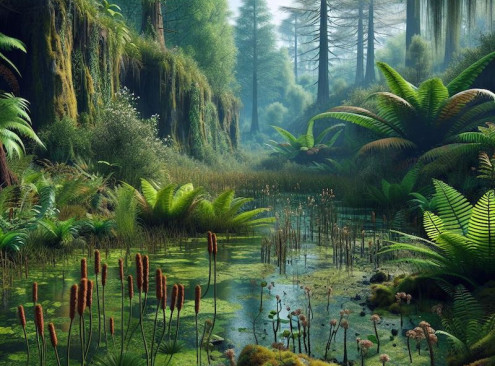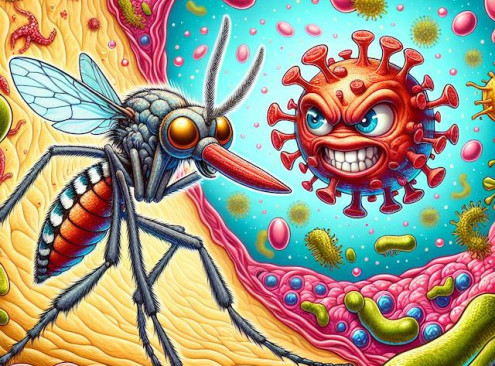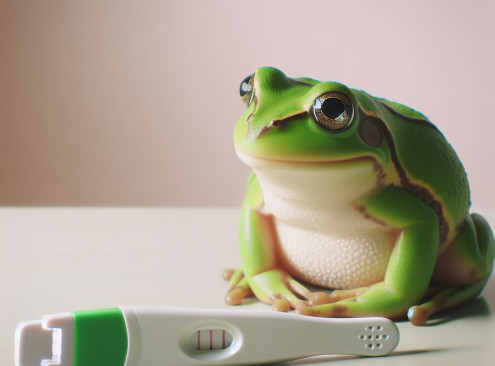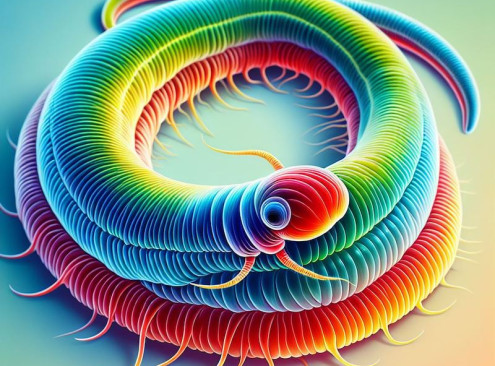© Pint of Science, 2025. All rights reserved.
Ever thought mosquitoes could be your best friends? Or frogs could tell you whether you are pregnant? (Better not kiss one!) Or worms could help us understand how we feel and think? Explore these fascinating creatures now and in the distant past when Stoke was a very different place.
How fossil forests made us
Dane Pavitt
(Natural Historian, Palaeontologist and Science Educator at The Potteries Museum)
A hundred million years before the first dinosaurs, what is now Stoke-on-Trent was a boggy, flooded forest that was home to strange creatures unlike anything alive today. Join this session to learn about how we came to know of this ancient time, the plants & animals that once lived here, & the surprising ways they shaped the modern world.
Dane is a natural historian, palaeontologist & science communicator. He is presently a student & researcher with The Open University, & a science educator & collections volunteer at the Potteries Museum & Art Gallery in Stoke-on-Trent.
Dane is a natural historian, palaeontologist & science communicator. He is presently a student & researcher with The Open University, & a science educator & collections volunteer at the Potteries Museum & Art Gallery in Stoke-on-Trent.

Viruses; providing the tools for their own destruction
Christine Reitmayer
(Lecturer in Infectious Disease)
Viruses such as Zika and Dengue are spread to humans and other mammals by mosquitoes. In this talk we will explore how these types of virus infect mosquitoes, examine the stages of the virus life cycle, and discuss different approaches used to control viral transmission from mosquitoes. Journey with us as we explore ways to arm the mosquitoes in the fight against this microscopic threat.
Dr Christine Reitmayer is a Lecturer in Infectious Disease interested in viruses, such as Zika virus, that are spread to humans by mosquitoes. Our research focuses on understanding more about the virus life cycle and how we can use this to target the spread of these viruses in mosquitoes.
Dr Christine Reitmayer is a Lecturer in Infectious Disease interested in viruses, such as Zika virus, that are spread to humans by mosquitoes. Our research focuses on understanding more about the virus life cycle and how we can use this to target the spread of these viruses in mosquitoes.

Frogs, pregnancy tests and rare diseases
Charlie Softley
(Lecturer in Pharmacology)
African clawed frogs were one of our earliest pregnancy tests, sat out the back of pharmacies. But what can they tell us now about rare lung and kidney diseases? And where do cilia fit in?
Charlie is a Lecturer in Pharmacology, researcher into ultra-rare diseases, and mad about crochet outreach!
Charlie is a Lecturer in Pharmacology, researcher into ultra-rare diseases, and mad about crochet outreach!

Worms (C. elegans) and the nervous system development
Muriel Desbois
(Lecturer in Molecular Neuroscience)
What can a microscopic soil roundworm teach us about the mechanisms of our brain and nervous system?
Join us to explore the world of Caenorhabditis elegans (C. elegans), a tiny worm with a big impact on our understanding of nervous system development! This fascinating organism has been a cornerstone in neuroscience research, helping scientists unravel the complexities of how nervous systems form and function.
Lecturer in molecular neuroscience, Muriel Desbois’s research focuses on how the nervous system develops and ages and which genes are important for these processes. She uses a small roundworm to find the genes that are important for the nervous system.
Join us to explore the world of Caenorhabditis elegans (C. elegans), a tiny worm with a big impact on our understanding of nervous system development! This fascinating organism has been a cornerstone in neuroscience research, helping scientists unravel the complexities of how nervous systems form and function.
Lecturer in molecular neuroscience, Muriel Desbois’s research focuses on how the nervous system develops and ages and which genes are important for these processes. She uses a small roundworm to find the genes that are important for the nervous system.

Map data © OpenStreetMap contributors.
